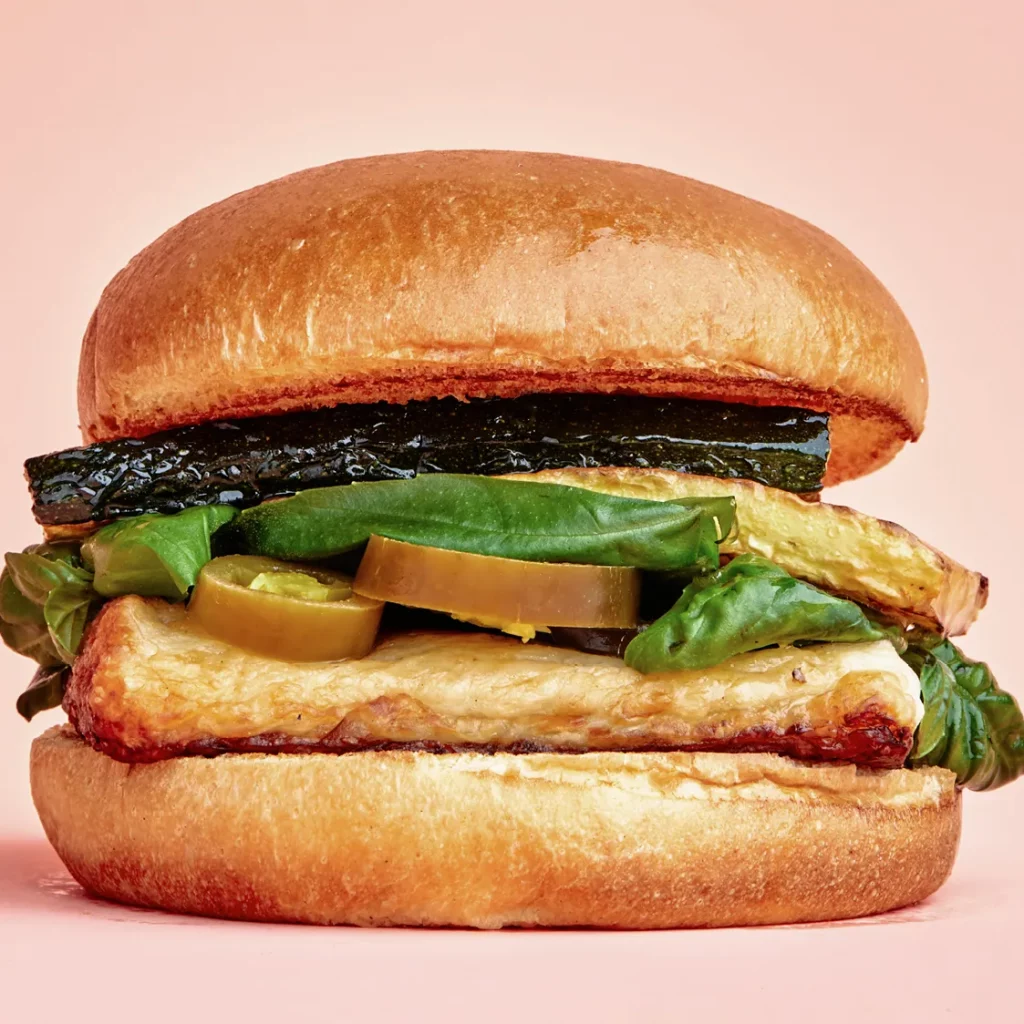
Happy Holidays & Omicron Greetings,
it is that time of year my friends! Corona-Omicron-Christmas 2021 isn’t far away. This time of year is full of all kinds of things for those who celebrate, and while it all feels admittedly different again because of COVID-some-mutation, dinner gatherings, desserts, parties, and the anticipation of the new year are all generally a big part of the holidays. We have been stressed a lot this year with this p(l)andemic but do you also feel stressed around the holidays when it comes to food? You’re not alone. Whether you have food intolerances or are worried about sabotaging your health goals, in today’s post I’m sharing some tips for you to have the most enjoyable holiday season.
Unfortunately, what can come along with this holiday season is anxiety and stress around food. Some of us are out of our comfort zone when eating meals that someone else makes. Perhaps you worry that you won’t be able to track calories, or you are afraid that a certain ingredient will be used that you prefer to or need to avoid. Maybe you’ll be tempted by the desserts that come around and all the sugar worries you. Situations like this can quickly make us feel out of control around food and lead us to feel pretty stressed.
I want you to know that I completely understand the fears or worries that you might have this time of year (or any other time!). Diet culture is embedded deep within many of us, and it can instil a sense of instability when we’re faced with food choices that seem “bad” or “unhealthy”. But I want you to know that there are solutions to the stress you might feel, and most importantly, there are things you can do to make your holiday experience comfortable, mindful, and enjoyable. I promise!

5 Tips for Stress-Free Eating Over the Holidays
1. Give Yourself Permission to Eat
The first and most important tip I can share here is for you to give yourself unconditional, unrestrained permission to enjoy all foods. I know this might sound like a crazy idea when all you want to do is maintain a healthy diet, but when we tell ourselves that we cannot eat a specific food or we declare something as “off-limits”, it makes us want that food even more. And if or when we do finally give in, the experience is tense and rigid, we feel immense guilt, and we set ourselves up for a continuous cycle of restriction and sometimes binge-eating later on.
The best way to loosen the power that foods have over us is to completely allow that food to exist in our lives, without restraint. I’m not saying that you have to eat anything and everything, but rather, if there is a specific food you’re salivating over, let yourself eat it and enjoy it fully! This means not only physically letting yourself eat it, but mentally, too.
Remember that the holidays are just that. A holiday! It’s a special time for enjoying yourself with friends and family, savouring home-cooked meals or your favourite childhood desserts. It’s an event, and giving yourself the wiggle room to enjoy a variety of foods, even if they’re ones that you might not typically cook or eat, is so important for your mental health and relationship with food.
2. Notice Hunger & Fullness Cues
I think most of us can relate to feeling “stuffed” after a big Christmas dinner. Holiday dinners often make us feel like we need to overload our plates and eat to the point of feeling a little sick, or just generally uncomfortable. Our bodies are incredibly smart and offer up some pretty helpful hints as to just how much we need to eat to make us feel our best. Trust me when I say there’s no need to stress over calories or portion sizes here! If you pay attention, you’ll know exactly when you’re starting to feel full and are ready to put your fork down. How can we start to tune into these inner cues more easily? Eating mindfully.
3. Eat Mindfully & Savour Each Bite
Eating mindfully helps us truly savour each and every bite, enjoy the eating experience more fully, and you got it – tap into our innate hunger and fullness cues. When we’re used to restrictive eating behaviours, we may subconsciously overload our plates in an attempt to not miss out on this rare chance to eat these kinds of delicious foods, or we may feel out of control when we finally give in.
You can practice mindful eating by simply becoming fully present and aware of the food you’re putting on your plate and immersing yourself in the entire experience. The wonderful smells, how each food looks on your fork, and the unique textures and tastes as you chew. Take this time to eat a little slower and really savour each bite. Ask yourself how satisfying each food is, which ones are your absolute favourites, and which ones aren’t. Reflect on how good — or not-so-good — something tastes. Are you eating it because you’re hungry, or because it tastes really good, or for no other reason than it’s “just there”? There’s no right or wrong answer here, by the way! Just simple observations.
Eating mindfully helps you avoid rushing through the food on your plate, increases your awareness of the entire eating experience, and can make you feel more physically comfortable as you allow yourself to notice and honour your satiety levels.
4. It’s Ok to Say No Just As Much As It’s Ok to Say Yes
As discussed in the first point, giving ourselves unconditional permission to eat is really important. But know that it’s also okay to say “no thanks!” through mindfully noticing and respecting the needs of your body.
If you genuinely desire a slice of warm apple pie with vanilla ice cream and every bite is the most satisfying thing ever, then enjoy it. But likewise, if you simply do not have a desire to eat that piece of lemon meringue, double chocolate caramel brownie, or a second slice of pumpkin pie that your neighbour keeps bugging you about, it is a-okay to honour your needs by politely declining if you intuitively feel full, satisfied, or uninterested in eating more.
And by the way, even if you DO eat a second slice of pie or another serving of ice cream, whether or not you were already full, THAT’S OKAY! Overeating is not a crime. As mentioned earlier, feeling guilty or shameful around food is only counterproductive and will make you want to restrict food later, which can set you up for a cycle of bingeing.
5. Navigating the Holidays with Food Intolerances
For those of you reading this who have food intolerances or sensitivities, don’t worry, I’ve got you, too!
I completely understand that there are some circumstances where the above tips alone may not quite suffice. Sometimes, we have specific dietary needs and that’s where our stress is coming from. Maybe you’ve recently discovered that dairy has been contributing to your upset stomach, or onions make your IBS symptoms a lot worse.
Here are three strategies for you to help reduce stress around food:
- Communicate your needs. Let the host or family member(s) know beforehand what your food restrictions entail. This can help to prevent any awkwardness that may arise when you pass up a certain dish.
- Bring a Dish. By bringing a dish of your own, you are guaranteed some safe food for you to eat while contributing to the party. You might offer to make a dish that doesn’t contain dairy or bring a dessert that’s gluten-free.
- Determine Your Comfort Level. Aside from severe reactions such as those in allergies (e.g. peanut allergy), sometimes it’s helpful for us to simply ask ourselves what our comfort level is when it comes to our intolerances. This means that depending on the severity of your symptoms, you might be willing to deal with some gas or bloating the next day in exchange for an enjoyable evening of your favourite foods with friends and family. Or, it might be a hard no for you to have any alcohol whatsoever because it’s just not worth it for you. In any case, knowing where you stand before the event can help you feel more prepared leading into it. For example, you might bring some digestive enzymes or peppermint tea with you to soothe your stomach after dinner, or an alcohol-free drink (kombucha anyone?) for you to enjoy with others so you feel more included.
Aside from these three tips, I want to highlight the benefits of taking a few deep breaths before you eat to help calm your nervous system. If you’re feeling anxious before eating, you may increase your likelihood of an upset stomach just by nature of how stress affects digestion. Breathe, eat slowly, and enjoy yourself!
Did you find these tips helpful? I’d love to hear from you! Let me know below what helps make your holiday season more enjoyable.